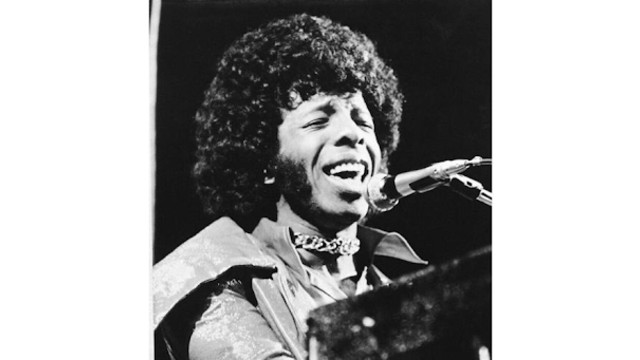
Rock star Sylvester 'Sly' Stone of Sly and the Family Stone, April 1972. AP Photo
Sly Stone, the magnetic frontman behind Sly and the Family Stone, who reshaped American music and culture in the late 1960s and ’70s, passed away at 82. The groundbreaking musician died in Los Angeles, surrounded by loved ones, after battling chronic health issues including COPD. His loss marks the end of a genre-defining era of American music.
Sly Stone - A Musical Revolution Born from Unity
Born Sylvester Stewart in Texas and raised in Vallejo, California, Stone was a musical prodigy. By age 11, he had mastered multiple instruments and recorded gospel music with his siblings. In his early years, he performed in racially integrated bands and earned a reputation as an eclectic Bay Area DJ.
Sly’s journey to stardom took flight in the late ’60s with Sly and the Family Stone, a diverse and dynamic group that shattered racial and gender norms. They delivered an explosive fusion of funk, soul, psychedelic rock, jazz, and doo-wop — a sound as radical as their makeup.
Their debut, A Whole New Thing, was soon followed by “Dance to the Music,” a hit that introduced each band member through rhythm and verse. It landed in the top 10 during a period of social upheaval, just as the world mourned the assassination of Dr. Martin Luther King Jr.
The Soundtrack of a Movement
Led by Sly’s high-octane energy and unmistakable Afro, the band became a cultural force. Hits like “Everyday People,” “I Wanna Take You Higher,” and “Family Affair” became anthems of inclusion, rebellion, and hope. With catchphrases like “different strokes for different folks,” their lyrics spoke to a generation.
By the early ’70s, the band had racked up three number-one singles and three platinum albums. Their iconic 1969 Woodstock performance cemented their legacy in the pantheon of rock and soul.
A Descent Into Darkness
Fame, however, came at a price. Under pressure from his record label and activists, and facing the weight of being a Black star in a divided America, Sly began to unravel. A move to Los Angeles marked the beginning of his spiral into drug use and erratic behavior.
The 1971 release of There’s a Riot Goin’ On signaled a shift in tone — moody, dense, and introspective. Tracks like “Family Affair” and “Time” reflected despair and isolation. Despite its commercial success, it marked the beginning of Sly’s decline.
By the end of the decade, the band had disbanded. Attempts at solo comebacks failed to recapture his earlier magic. Though recognized at the Rock & Roll Hall of Fame in 1993 and the Grammys in 2006, Sly released only one more studio album, a mix of re-recorded classics.
A Legacy That Burned Bright
Despite a career that dimmed far too soon, Sly Stone’s influence burns brightly. From George Clinton to Prince, from the Black Eyed Peas to Dr. Dre, artists across generations drew from his legacy. His music remains a blueprint for unity, creativity, and bold cultural expression.
Sly Stone wasn’t just a performer — he was a movement.















